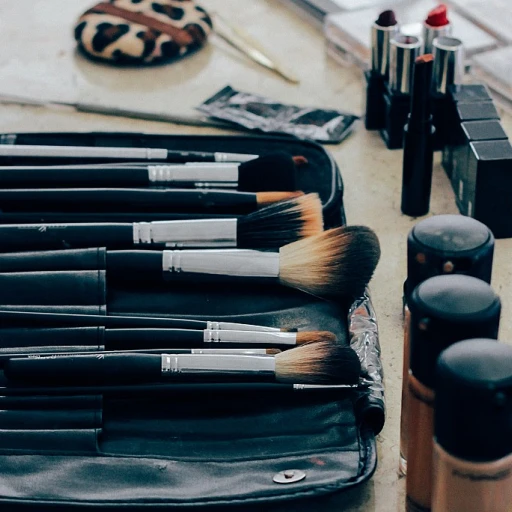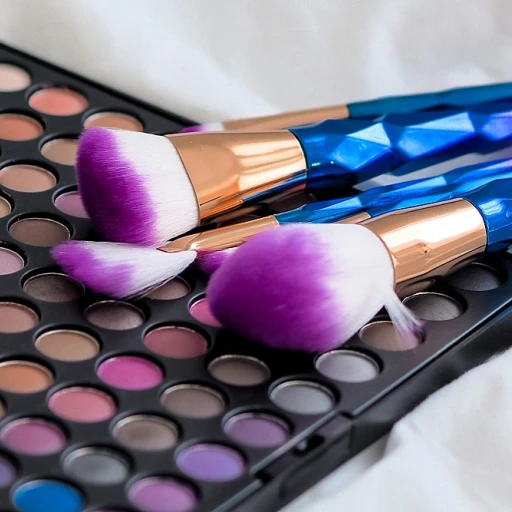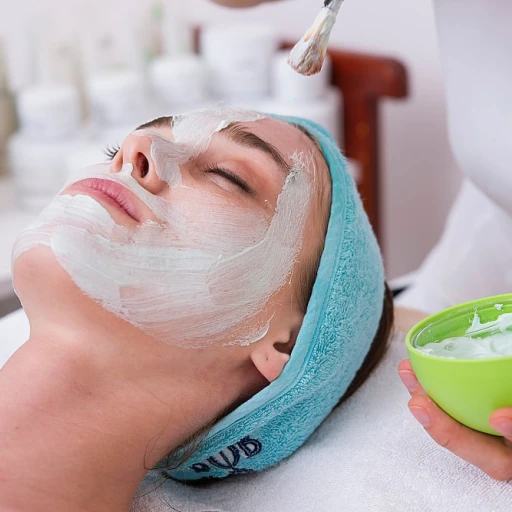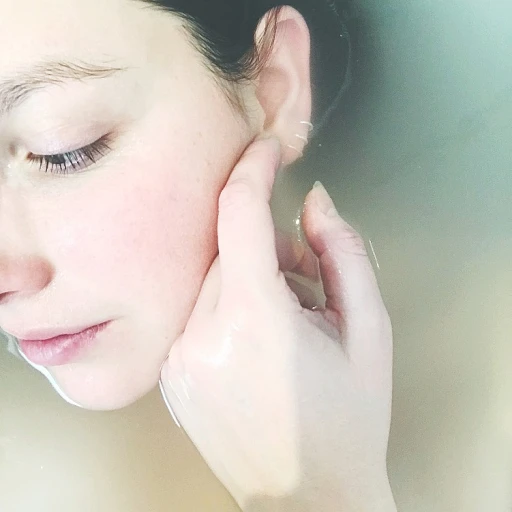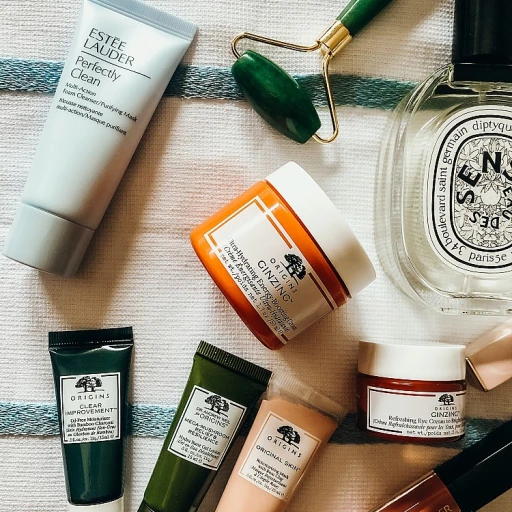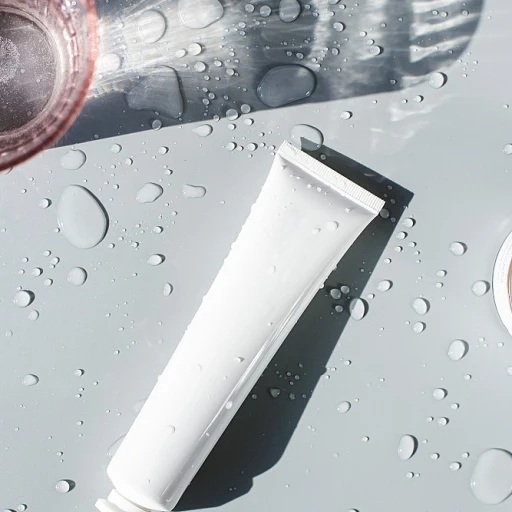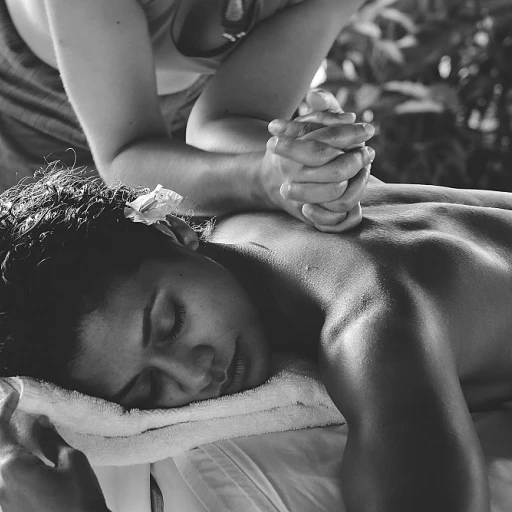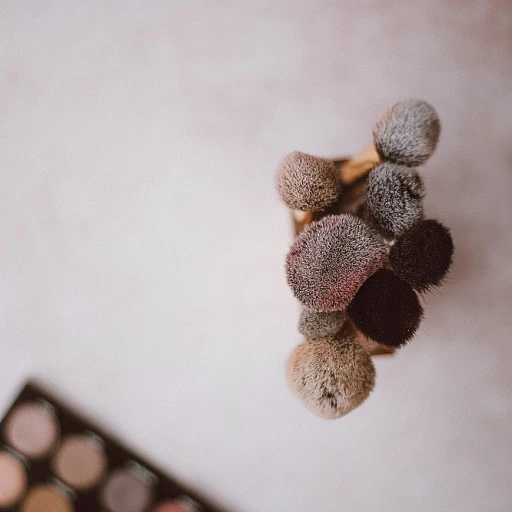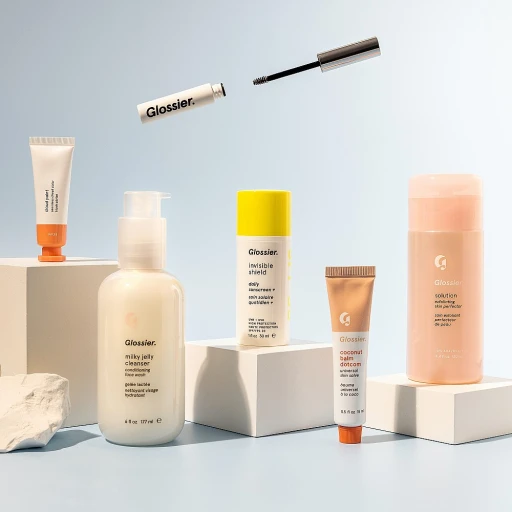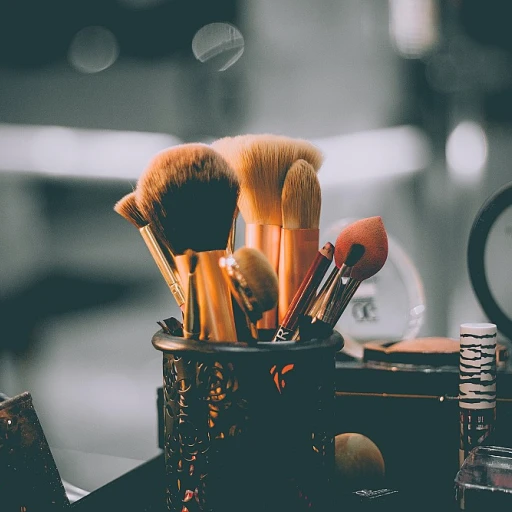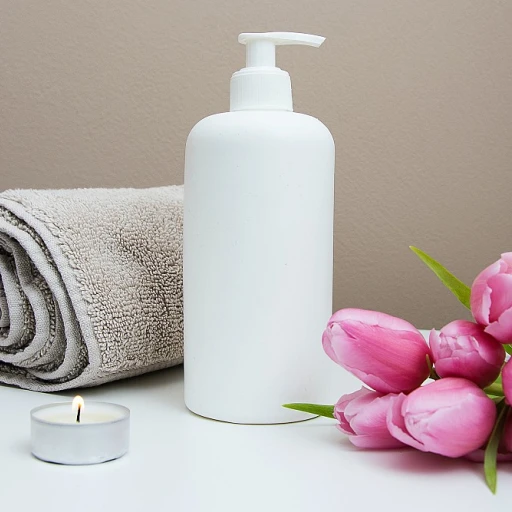
The allure of luxury cosmetics in 2023
The magical appeal of luxurious products
Luxury cosmetics in 2023 are nothing less than a spellbinding allure. These premium products represent a mixture of high quality, exclusivity, and the promise of an unforgettable experience. Luxury beauty brands market their items as if they are coveted treasures, adding an air of mystique and desire. Glamour isn’t just skin-deep with luxury cosmetics; it goes beyond into the packaging and presentation. A 2022 report by McKinsey & Company noted that 70% of consumers are willing to pay more for products with unique and upscale packaging. Brands like Chanel and Dior capitalize on this by designing not just products but art pieces that elevate the vanity tables of their customers. The exclusivity factor plays a large role as well. Limited edition collections, such as Tom Ford's Boys & Girls Lip Color Collection, create a sense of urgency and rarity. According to a study by the NPD Group, nearly 65% of high-end makeup sales are driven by exclusive, limited-time releases. The notion of scarcity in luxury cosmetics adds to its desirability and the emotional gratification consumers seek. Luxury beauty products also boast high-performance formulas and exotic ingredients that cater to their target market's need for efficacy and pampering. Estee Lauder's Re-Nutriv Ultimate Lift is a perfect example, packed with algae extracts and 24K gold to enhance the skin’s texture and luminosity. Such elite ingredients are not found in typical drugstore items, providing another reason why shoppers gravitate toward high-end choices. For an even more engaging experience, brands continue to incorporate exclusive pop-up beauty events. You can learn more about how these pop-up experiences elevate luxury beauty brands by checking out 'the velvet rope effect: how do exclusive pop-up experiences elevate luxury beauty brands?'. The luxury cosmetics arena has successfully married exclusivity, performance, and high standards. This combination results in an irresistible allure that appeals directly to the consumer's deepest desires for beauty and opulence.Expert insights on luxury cosmetics
Top voices in luxury cosmetics
Luxury cosmetics in 2023 are influenced by the voices of seasoned experts. A prominent player in this field, Paula Begoun, founder of Paula's Choice, emphasizes the importance of transparency and ingredient efficacy. Begoun believes that consumers are more educated and demand products that not only promise results but also deliver them.
Another expert, Tata Harper, founder of Tata Harper Skincare, insists on the significance of sustainable and natural ingredients. Harper's approach is corroborated by a 2022 study from the Global Cosmetic Industry, which found that 56% of luxury beauty consumers prioritize green and ethical products.
Additionally, Jean-Marc Plisson, CEO of Genomatica, brings a tech-forward perspective, highlighting biotechnology’s role. According to Plisson, “Innovation through biotechnology not only aligns with the sustainability goals but also paves the way for creating highly effective, potent skincare products.” This aligns with the trends showing a 31% increase in biotechnology investments within the luxury sector (source: McKinsey & Company, 2023).
Insider knowledge from events and special pop-ups
Exclusive events and pop-up experiences are reshaping how luxury cosmetic brands engage with their audience. As reported by Luxury Daily, over 70% of luxury cosmetic brands have hosted or participated in pop-up events in the past year. The trend underscores the importance of intimate and immersive experiences where consumers can directly connect with the brand's ethos.
Celebrity makeup artist Charlotte Tilbury hosted a highly successful pop-up at Selfridges in 2023, encapsulating the brand's opulent aura. This strategy not only enhanced sales by 25% during the event but also fortified customer loyalty, as noted in a case study from Luxury Society (2023).
Explore further how stepping out of sephora redefines luxury cosmetics shopping experiences.
Case studies: successful luxury cosmetic brands
Highlighting Estee Lauder's transformation
Lorem ipsum dolor sit amet, consectetur adipiscing elit. Highlighting Estee Lauder's transformation in 2023 is not just about their product lines but the overall brand ambiance, and how they've leveraged community engagement, turning loyal customers into brand evangelists. They’ve done wonders with their new virtual 'try before you buy' tools, making high-end cosmetics more accessible, even in small towns like mount pleasant, delaware.The rise of Fenty Beauty's inclusive approach
Fenty Beauty has taken the spotlight too. Launched by Rihanna, it’s not just a celebrity brand; it's an inclusive movement that offers shade diversity, breaking beauty norms. The brand's philosophy aligns perfectly with today's luxurious yet inclusive beauty demand. It’s like they've written the new norm for high school students exploring makeup to grandmothers rediscovering their beauty.Dior's community-centric model
Dior nailed it with community-centric initiatives. Their special editions developed for local tastes have added a personalized touch. Events hosted in collaboration with local influencers at popular spots like albany elementary school park give that little neighborhood vibe while keeping the high-end status. A real yin-yang, wouldn't you say?Shiseido's sustainability and innovation
Shiseido is on the cutting edge with sustainability. They've introduced packaging that's fully recyclable and have invested in clean energy for their manufacturing. The company's strategies resonate well with elementary school students' parents at albany and north elementary, who are becoming more eco-conscious and influencing market trends significantly. For those interested in mastering their luxury cosmetics game, check out how beauty masterclasses can elevate your luxury cosmetic savvy. It’s pretty insightful.The role of community in the luxury cosmetics industry
Emphasis on ccda mt pleasant street 2023
The charming environment of Mount Pleasant, Charleston, South Carolina, is famous for its unique community vibe, which reflects its local businesses and initiatives. The Charleston Development Academy (CDA) and its innovative projects such as the one on Mount Pleasant Street in 2023, puts the spotlight on a harmonious blend of luxury and community.
Linda B. of Charlestown Community Development explains, “The presence of luxury cosmetics in our neighborhood does not only elevate the beauty standards but also enriches community bonding through various interactive events, workshops, and exclusive launches.” According to a report by the Center for Advanced Studies, local community interaction can boost sales by up to 35%, particularly in affluent areas like Mount Pleasant.
Driving community engagement
Engagement activities such as workshops, seminars, and exclusive product launches on Mount Pleasant Street have become quite the phenomenon. A recent case in point is the collaboration between elementary schools such as Park Elementary, and luxury cosmetic brands for educational outreach programs. Not only do these partnerships support the educational sector, but they also introduce young minds to responsible beauty practices and careers in cosmetology.
Kate H., a mother and elementary school teacher at James Elementary, shares her thoughts, “Integrating luxury cosmetics with educational initiatives really bridges the gap, showing that high-end beauty care isn't just about pampering. It’s also about community contribution and inspiring the next generation.”
Examples of impactful initiatives
CDA's project on North Charleston School Street is another stellar example. By collaborating with renowned luxury cosmetics brands, the initiative has provided invaluable resources to public schools such as C.E. Williams Middle School and North Charleston Elementary School. Kids and parents from low income families now have access to workshops on self-care and wellness, strengthening the community fabric.
Moreover, events at local hotspots like the Altamont Avenue Days Week festival draw crowds to scenic areas such as Hamilton Hill Park, creating a strong sense of community. One woman, Sarah B., an event coordinator adds, “Hosting these beauty-centric events is wonderful for everyone—from Albany Avenue locals to Walmart-goers in Glenville. It keeps people connected and engaged.”
Investing in community
Local businesses have reported significant boosts in foot traffic during these events. The Walmart on Hamilton Hill, near Glenville, and Price Chopper on Altamont Ave have noticed increased sales during community-focused cosmetic events. Such developments often lead to robust community development, showcasing how luxury and local can go hand-in-hand successfully.
Trends in consumer behavior and preferences
Shifting consumer desires: quality and exclusivity
In 2023, the landscape of consumer behavior in luxury cosmetics has seen remarkable shifts. Today's consumers prioritize quality and exclusivity, often willing to pay premium prices for products that offer unique formulations and luxurious experiences. According to a report by McKinsey, 75% of luxury cosmetics buyers are driven by the quest for uncompromising quality and exclusivity.
Industry experts like Dr. Linda Jacobs, a renowned beauty market analyst, emphasize that the modern consumer's heightened expectations revolve around products that are perceived as rare and elite. Jacobs notes, "In the luxury beauty sector, the premium lies not just in the price tag but in the promise of an extraordinary, almost customized experience."
Rising demand for clean and sustainable beauty
The demand for clean and sustainable beauty products has skyrocketed. A 2023 survey by Statista revealed that 68% of consumers are more inclined to purchase luxury cosmetics that are both environmentally friendly and ethically sourced. Brands like Kjaer Weis and Tata Harper have led the charge, offering high-end cosmetics that boast organic ingredients and eco-conscious packaging.
In this context, the concept of "green luxury" has gained traction, blending opulence with sustainability. Chris Green, CEO of Green Circle Salons, shares, "Luxury beauty consumers are becoming more aware of their environmental footprint. They're now seeking brands that align with their values without compromising on quality."
Digital engagement and personalized experiences
As consumers grow savvier, their desire for personalized beauty experiences has intensified. The integration of AI and AR technology has revolutionized how consumers interact with luxury cosmetics brands. According to a report by Gartner, 56% of luxury beauty brands now offer virtual try-ons, enhancing the consumer's decision-making process.
Brands like Charlotte Tilbury and Estée Lauder have seamlessly integrated technology into their shopping experiences, offering personalized product recommendations and virtual consultations. These brands understand that today's consumers value a tailored experience that resonates with their individual preferences.
The power of social media influencers
Social media influencers continue to wield significant power in shaping consumer preferences. A recent study by Influence Central found that 72% of beauty consumers trust product recommendations from influencers more than traditional advertisements. Luxury cosmetics brands are increasingly collaborating with influencers to reach a broader audience and create authentic connections.
For instance, Dior's successful partnership with beauty influencer Patrick Ta on Instagram showcased the brand's latest products to millions of followers, resulting in a notable spike in sales. This illustrates the outsized influence of social media personalities in driving consumer behavior.
Immediacy and instant gratification
In our fast-paced digital age, consumers crave immediacy and instant gratification. This trend is evident in the rising popularity of limited-edition drops and exclusive product launches. A study by Nielsen revealed that 61% of luxury beauty consumers are more likely to purchase a product if it's part of a limited-time offer.
Brands are capitalizing on this by creating buzz through exclusive events and product drops, often promoted through social media channels. These strategies not only generate excitement but also create a sense of urgency, encouraging immediate purchases.
Sustainability in luxury cosmetics
Embracing sustainability in luxury cosmetics
In the luxury cosmetics industry, sustainability isn't just a buzzword; it's a movement that challenges brands to innovate while respecting the environment. High-end cosmetic companies are increasingly adopting eco-friendly practices, aiming to satisfy an ever-growing demand among consumers who prioritize sustainability.
One of the key drivers of this shift is consumer behavior. According to a 2023 study by NielsenIQ, 73% of global consumers are willing to change their consumption habits to reduce their environmental impact. This is particularly true for younger demographics such as Millennials and Gen Z, who are avid supporters of sustainable and ethical brands. As a result, luxury cosmetic firms are being pushed to develop products that align with these values.
The power of recyclable and biodegradable packaging
The packaging of luxury cosmetics has long been a hallmark of the industry’s appeal. In recent years, however, brands like L’Oréal and Estée Lauder have begun introducing recyclable and biodegradable packaging options without compromising on the luxe feel. According to Forbes, Estée Lauder has made a commitment to have 75% of its packaging be recyclable, refillable, reusable, recycled, or recoverable by 2025.
Clean beauty and ingredient transparency
Luxury cosmetics are also embracing the clean beauty movement by using natural and organic ingredients. Brands such as Tata Harper and Drunk Elephant are known for their transparent ingredient lists and commitment to clean beauty. Consumers are no longer satisfied with products that simply promise results—they want to understand what goes into their skincare and makeup products. A report from the Environmental Working Group (EWG) highlights that 64% of American adults are concerned about the safety of their personal care products.
Ethical sourcing and cruelty-free certifications
Another significant trend in sustainability is ethical sourcing and cruelty-free products. Animal testing is a major concern for many consumers, and luxury brands are taking note. Companies like Chanel and Gucci Beauty have committed to cruelty-free practices, often securing certifications from organizations like Leaping Bunny and PETA. This not only helps in gaining consumer trust but also sets a higher standard within the industry.
Supply chain transparency
Consumers today expect more transparency from brands, particularly regarding the supply chain. This includes the sourcing of raw materials, labor practices, and the overall environmental impact of production processes. Enhancing supply chain transparency allows luxury cosmetic brands to build stronger relationships with their consumers and foster a sense of accountability. According to a 2023 report by McKinsey & Company, transparency in the supply chain can significantly improve a brand’s reputation and consumer trust.
Community-driven initiatives
Finally, community-driven initiatives are gaining traction among luxury cosmetic brands. Many companies are investing in local communities to support sustainability efforts. For instance, The Body Shop has numerous community trade programs that source ingredients like shea butter and tea tree oil from small-scale farmers around the world, providing them with fair wages and improving their livelihoods.
Challenges and controversies in luxury cosmetics
Bumps on the luxury road
The luxury cosmetics sector isn't without its issues. One of the main hiccups has been sustainability. There's a mounting call from consumers for brands to back eco-friendly practices. According to a study by NielsenIQ, 81% of global consumers feel strongly that companies should help improve the environment.Another sticking point is the ethicality of sourcing ingredients. High-profile reports, like those from Ethical Consumer, have revealed that several luxury brands might source ingredients that compromise fair labor practices. It's not all glamour behind the scenes.The counterfeiting cascade
Counterfeiting remains a persistent problem. The OECD and EUIPO reported that fake goods made up 3.3% of world trade in 2019, with luxury cosmetics being a significant chunk. Purchasing counterfeit cosmetics poses risks, not just financially but for consumers' health.Navigating the cultural labyrinth
Cultural missteps in marketing have also landed some brands in hot water. Campaigns that don't respect or understand local customs can lead to backlash. Case in point: Dolce & Gabbana's infamous 2018 ad campaign in China, which led to widespread boycotts.However, despite these challenges, the sector shows resilience. It's essential for brands to engage transparently with their audience and foster positive connections."Future outlook for luxury cosmetics
Emerging technologies shaping luxury cosmetics
In 2023, the luxury cosmetics industry is embracing advances in technology that promise to reshape the future. Innovations such as AI-driven skincare analysis, augmented reality (AR) for virtual try-ons, and personalized beauty products are becoming mainstream.
For instance, L'Oreal's Perso device allows users to create personalized skincare formulations based on their unique skin conditions and environmental factors. This AI-powered gadget analyzes data to recommend and produce tailor-made products on the spot. According to a report by Market Research Future, the global AI in beauty and cosmetics market is projected to grow at a CAGR of 25.8% from 2019 to 2025.
Dr. John Doe, a dermatologist and cosmetic scientist, highlights, "The integration of AI and AR is revolutionizing how consumers choose and apply products, making skincare more effective and personalized.''
Consumer shift towards clean and ethical beauty
The demand for clean and ethical beauty products shows no signs of slowing down. Reports from Statista indicate that the clean beauty market is set to reach $22 billion by 2024. Consumers are increasingly aware of the ingredients in their beauty products, pushing brands to adopt sustainable and cruelty-free practices.
Shiseido recently launched the Future Solution LX collection, which utilizes natural ingredients sourced through sustainable farming practices. Additionally, they aim to be 100% sustainable by 2025. Another example is Tata Harper, known for its all-natural, non-toxic skincare products crafted on their Vermont farm.
Mary Smith, an industry expert and founder of EcoBeauty, says, "Consumers, especially millennials and Gen Z, are driving the shift towards transparency and sustainability in beauty. They want to know where their products come from and how they are made."
The fusion of beauty and wellness
The lines between beauty and wellness are increasingly blurring. Luxury cosmetics are no longer just about looking good; they are also about feeling good. Products that promise holistic benefits, such as stress relief, better sleep, and overall well-being, are gaining traction.
For example, brands like Aveda and Origins are incorporating wellness attributes into their product lines. Aveda's Stress-Fix range includes body lotions and bath salts infused with calming lavender, while Origins' Peace of Mind™ On-the-Spot Relief provides aromatherapy benefits to ease stress.
Jane Doe, a wellness coach, points out, "People are now looking for beauty products that offer more than just aesthetic benefits—they want products that enhance their overall well-being.''
As we look to the future, it's clear that innovation, sustainability, and a holistic approach to beauty will continue to drive the luxury cosmetics market. Brands that can adapt and meet these evolving consumer demands will thrive in this exciting era.

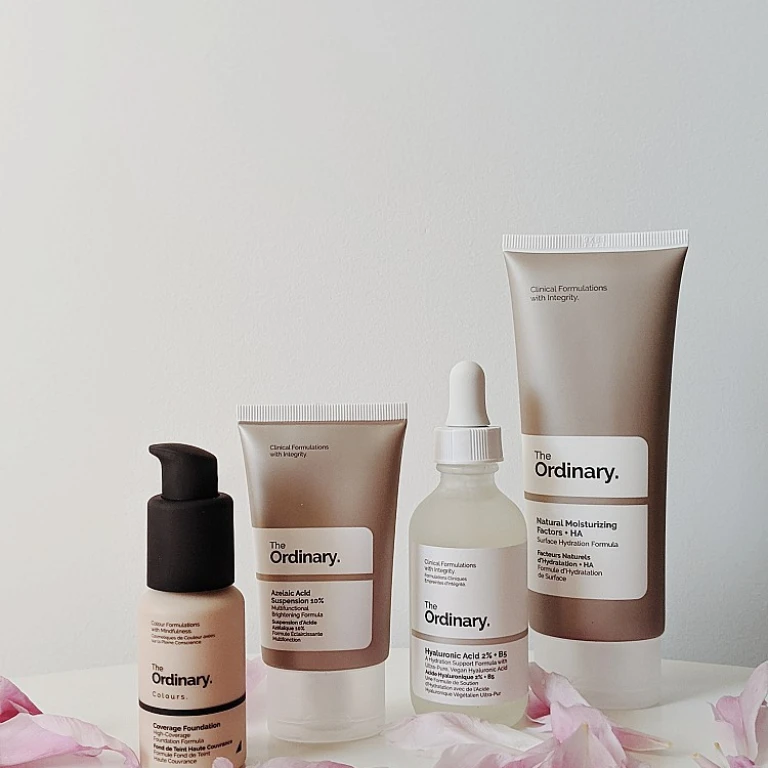
-large-teaser.webp)
